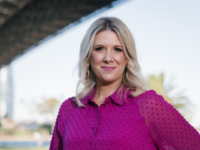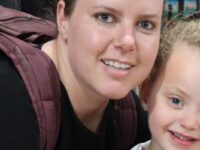This week we chat to Ross Sharman, founder and CEO of EnergyIQ, an independent online marketplace for Australians who want to reduce their household emissions and switch to clean, renewable energy. Ross is on a mission to reduce the environmental impact and cost of household energy.
ISB: What was the motivation behind you setting up EnergyIQ?
RS: I have questioned the role of fossil fuels to power our homes for a long time, so I decided it was time to tackle the issue head-on. My degree in electrical engineering and subsequent career in software gave me the capabilities to do it.
For the past ten years, Australia had been actively investing in large-scale renewable infrastructure like solar and wind farms, but recently, that investment has dropped off significantly. Without clear renewable plans or a target from the federal government, the financing for new renewable assets is uncertain. So, we address the consumer issues around carbon emissions and high-cost energy. Our mission is to help every Australian power their homes (and cars) with smarter, renewable energy.
ISB: What was the biggest challenge you faced in getting the enterprise off the ground?
RS: EnergyIQ is our only direct to consumer product. Our other products are B2B and our business partners then market to the consumer on our behalf.
So, our biggest challenge has been with getting volumes of consumers to the site to interact in a cost-effective manner. Paying search fees is not a sustainable solution. We have been testing a number of marketing strategies, so that we can work the B2C funnel effectively. Ultimately we will need more marketing capital once we have decided on our best strategies. We are currently running an equity raise to help fund this marketing that will get more consumers to engage with the EnergyIQ site and look for renewable energy options.
ISB: Your business was conceived during the bushfire crisis and launched in the middle of a global pandemic – in what way, if any, have these events shaped the way the business has developed and grown?
RS: I think both the bushfires and the pandemic have helped our business, as homeowners have been made to think more about their energy supply chain and the resilience of their home. The bushfires showed vulnerabilities in the grid and caused blackouts which can be mitigated with solar and batteries. The pandemic has meant a lot of people have spent more time at home and using more energy in the day – this extra energy cost could be offset with solar.
Australia’s response to the pandemic has also shown us that not all vital change can be made by the government alone, and that we all have critical roles to play as individuals. I think many people have realised that we hold the power to have an impact on those around us, either good or bad. The same is true with energy – we are all able to change our power.
ISB: What has the public reception to EnergyIQ been so far and how satisfied, or otherwise, do you feel about that reception?
RS: Feedback has been good but modest in volume. We are proud of what we’ve achieved but will only be satisfied when we see thousands of homeowners installing solar, batteries and enjoying cheaper, low-carbon energy. Importantly, though, we have proven a market need and will be working very hard in the coming months to add more functionality (such as a free solar estimator tool) and to reach more homeowners.
ISB: What is your vision for EnergyIQ in the next few years?
RS: Our vision is to help homeowners take control of their energy costs and associated carbon emissions. This will, ultimately, end in the home powering the car with free solar energy. By providing Australians with an easy pathway to switch their household to future-focused power, we want to increase the usage of renewable energy and, therefore, investment in more large-scale renewable infrastructure by government and energy retailers.
EnergyIQ is our vehicle to test and learn from consumers how we can best achieve this vision, as well as which partners we best work with to make this journey seamless and straightforward.
ISB: And, finally, what is the number one piece of advice you’d share with those looking to start a small business they hope will make a big difference?
RS: Be patient, this is a marathon, not a sprint. It takes unwavering passion, lots of persistence and patience. I do not believe anything worthwhile in life comes easy, so, don’t be afraid to take the harder option and learn through challenges. And surround yourself with a core of great people to work with.
















